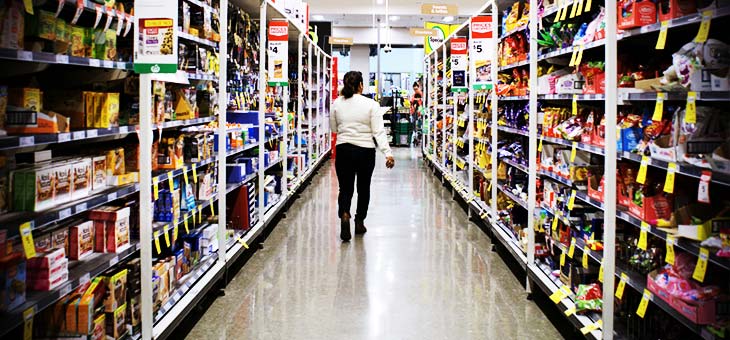Australian shoppers will benefit as supermarkets start to return to normal for the first time in months, but spare a thought for the casualties of normalcy.
Stocks will return to normal, even surplus, buying restrictions of ‘essential’ items will be lifted, product price drops will start to pop up on shelves and crowds of panic buyers will dissipate, but, as a result, so will the working hours for thousands of casual employees.
Around 32,000 casuals hired to help control panic-buying pandemic shopping are now having their hours reduced as demand levels out.
Thousands of staff brought on to manage shelf packing, enforce social distancing, receive and send deliveries and orders, clean and sanitise shopping trolleys, baskets and stores and the myriad extra checkout staff put on to process orders will soon join the employment casualty list headed up by the travel, hospitality, arts and freelance industries.
It wasn’t as though we didn’t see it coming.
“Clearly, big retailers that took on extra staff at the height of the pandemic were always going to have to return to ‘normal programming’ at some stage, but it’s always worrying when we hear about job losses – even if they were only ever temporary positions,” University of Tasmania senior marketing lecturer and retail expert Professor Louise Grimmer told The New Daily.
According to Retail and Fast Food Workers Union secretary Josh Cullinan, some supermarket staff have seen their shifts slashed with little to no warning, adding that many workers with changing shifts have seen their allocated shifts cut from five to one, with no notice.
The Shop, Distributive and Allied Employees Association told news outlets it had received complaints from both long-term casuals and recent hires.
However, University of Adelaide employment law and workplace relations expert Andrew Stewart said casual workers had few rights and would be unlikely to file for unfair dismissal if they had worked casually for their employer for fewer than six months. Professor Stewart said supermarkets had openly hired workers with no formal guarantees on the working period.
Woolworths, which had put on 20,000 casuals during the crisis, claim many departing casual workers were returning to their regular jobs as restrictions lift and other sectors restart.
“As trading patterns continue to normalise, we’ll have fewer hours to offer than we did a couple of months ago,” said a Woolworths spokesperson.
While staff may be the casualties of relaxed restrictions and reduced demand on supermarkets, shoppers will benefit from oversupply and the resulting price drops introduced by retailers to offload excess stock.
Supermarkets have filled extra warehouses with bulky goods they ordered to cope with indefinite demand. However, it will be cheaper for them to offload these items sooner, rather than waiting for when demand returns, so, in stark contrast to a month or two ago, shoppers can expect to see ‘sale’ tickets on some shelves soon.
“In order to shift excess stock we will likely see promotions and discounts on formerly in-demand products,” said Dr Grimmer.
Currently, Coles has repealed all product limits on in-demand items.
Woolworths still has limits in place for antibacterial wipes, hand wash and frozen fruit, at a cap of two items per customer.
Are you glad to see the end of buying restrictions?
If you enjoy our content, don’t keep it to yourself. Share our free eNews with your friends and encourage them to sign up.
Related articles:
https://www.yourlifechoices.com.au/news/supermarkets-the-devil-in-disguise
https://www.yourlifechoices.com.au/health/covid19/supermarket-ending-elderly-hour
https://www.yourlifechoices.com.au/health/covid19/supermarket-support-for-over-70s

